 Each generation brings something new into the American lexicon, and sometimes that means sweeping “dirty” words into the “acceptable” column. I remember my mom kicking up a fuss when I said “gee” one time, not because it was a dirty word, but because “gee” is derived from the name “Jesus.” “Golly” was also a no-no, since it is derived from “God.” We weren’t to take God’s name in vain in any form or fashion.
Each generation brings something new into the American lexicon, and sometimes that means sweeping “dirty” words into the “acceptable” column. I remember my mom kicking up a fuss when I said “gee” one time, not because it was a dirty word, but because “gee” is derived from the name “Jesus.” “Golly” was also a no-no, since it is derived from “God.” We weren’t to take God’s name in vain in any form or fashion.
Among the curse words of my youth, “dang” and “darn” were derivatives of “damn,” and therefore forbidden. “Heck” was too much like “hell” to make the no-mouth-soap zone. “Butt” could get you in trouble, but kids snickered over the word anyway.
Today, the mere idea that these words were once considered “dirty” is laughable. Can you imagine a character in a novel pointing a gun and saying, “Gee, you make me mad! Go to heck, you danged varmint! Get your butt outta here or I’m gonna shoot!” Doesn’t exactly fit the mold for edgy Christian fiction–and for mainstream fiction? Oh, puh-lease!
I realized something the other day while editing a client’s manuscript: the older I get, the more I’m like my mother. And I’m not talking about the cool mom either. I’m talking the lecturing, soap-totin’ mom who wanted me to keep my language pure and pristine. What sparked this revelation? I read the word “piss” in a Christian manuscript.
Don’t get me wrong. Many generations used the word in different ways, and it wasn’t considered cussing. “Piss and vinegar.” “Piss ant.” But for the most part, use of the word was unacceptable, and replaced with the more polite, “tick.” “That really ticks me off!”
Another word is “ass.” Yes, that one can even be found in the old King James version of the Bible, but it means “donkey.” Considering there are publishers out there who still find “butt” objectionable, I wonder how this one is going to be accepted in the Christian fiction industry.
The killer, “friggin'” or “frickin’,” is an obvious substitution for a word so foul no one in polite society uses it–at least not around here. I’d heard that the original word is derived from the penal code in jolly old England back in the 19th century or so (may be earlier, but I’m not sure). Prostitutes were arrested and charged with felonious use of carnal knowledge, then put away for a time to get them off the streets. The acronym went from being a legal term to a soap-worthy dirty word I’ve never used and don’t intend to. [I just discovered this is “urban legend,” and since I can’t remember where I first heard this definition, I can’t say that it’s not urban legend. OOPS! Ignore me–and thanks, Jessica Snell for pointing it out.] But, I’ve never used the substitutes, either. Still the word itself and it’s substitute have permeated society and are tossed around like breadcrumbs for pigeons in any secular book or movie. Only once did I read the substitute in a Christian manuscript, and I didn’t think twice about red-lining it.
“Hell” and “damn” have been showing up in Christian works in recent years, employed in their non-Christian meanings, so maybe I was being old-fashioned by wanting to red-line “piss” in the manuscript I was editing. I put the question out on a couple of loops yesterday. These loops are composed of professionals in the Christian book industry–agents, editors, and authors. I wrote: “I’m seeing some words in the works I edit that weren’t ‘okay’ when I was a kid. Are the current alternatives for “ticked off” and “backside” acceptable in the Christian market?”
I was surprised at the range of answers I received. Some were adamantly against the use of the “milder” dirty words and included in the group of unacceptable terminology the current fad of OMG. (Personally I agree with that. OMG bugs me enough as it is, but it’s worse counterpart, OMFG, is downright offensive.)
Others felt the words were no big deal. At most, I should point them out to my clients and inform them the language may be marked for removal by a publisher.
I still wonder if not red-lining these words is the same as condoning the degeneration of the American lexicon. Or maybe I should just join the 21st century and accept the changes–at least while I’m editing. I don’t think I could ever get comfortable adding these words to my vocabulary.
Since I’m undecided, let me ask your opinion. What do you think?

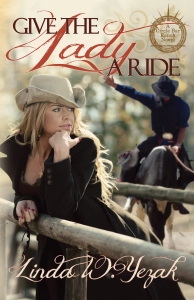




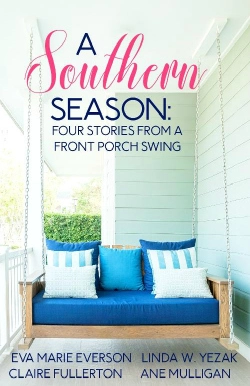
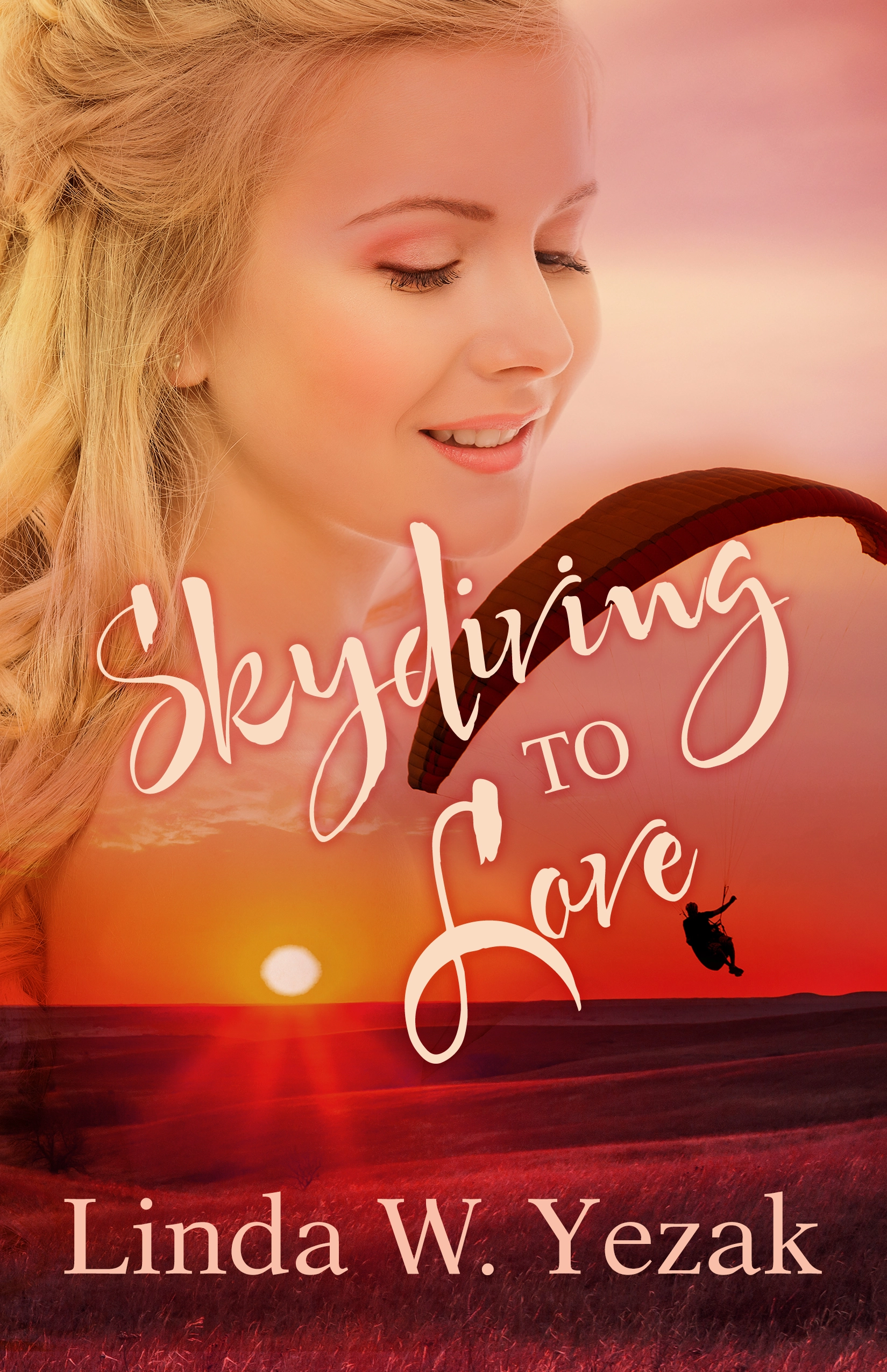
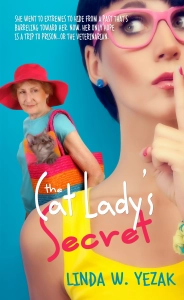






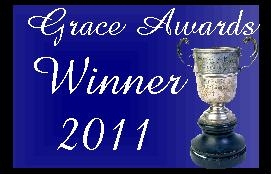


You are posting *again* on something that has been on my mind. I just sent off my second book to my editor, and this book has a couple of the words you mention. “Pissed off” and “freakin'” to be specific. It’s a YA series, too, and while I personally have no issues with the words, and I highly doubt my editor will either, I worry that certain readers might.
The problem is this, though: It’s what the characters would say. Truly. I have two different characters thinking/commenting about someone being upset. One uses “ticked”–because that is how her mind works. The other, though, is a bit rougher and “ticked” just wouldn’t quite work for her. She’s an angry teen, and angry teens don’t use “nice versions” of words. I draw the line on the f-bomb in YA fiction, though. Realistic or not, it’s not necessary. And plenty of teens, even rough, angry ones, use the softer versions of that one.
Anyway, when I read through the manuscript last time, one of my intentions was to see if the word “pissed” jumped out at me and seemed out of place. It didn’t. It worked. And I believe I intend to keep it in there for that reason, and hope my more sensitive readers understand.
LikeLike
Funny thing. The word “p*ss” is more offensive to me than some of the stronger words. (f-word not included, of course.) I think it has to do with when and where I’ve heard it in the past. A certain type of person, using it at the wrong time and the wrong place makes it a real turn- off for me. I can’t even bring myself to say “P*ss and Vinegar.” It’s “P and V” if I say it at all.
LikeLike
I, too, avoid the F-word and all derivatives of it. However, in keeping with what Kat just said . . . our goal is realism. We want people and scenes to come alive to the reader. Somehow, I can’t feature a depraved, hardened antagonist saying “Oh, fiddlesticks, I didn’t want you to do that. Pooh, now I’m going to have to beat the stuffings out of you.”
I had a little problem, having been immersed for 30 years in the ministry, putting the right words in the mouth of a pastor-gone-bad. So I tried to manipulate his scenes in such a way he didn’t always say just what he was thinking. Although he did use the word “whore.” Hey, what was he supposed to say in a moment of extreme anger, in his demented state? “Get away from me, you naughty person.”
An author friend of mine, pubbed by a major company told me they’d edited out the line . . . “He mumbled a curse word under his breath.” Ouch! Christian people are real. (Some a little more “real” than others.) If they have no bad habits and make no mistakes, they become Christian robots. And antagonists are . . . well . . . antagonists. I think, as authors, we should try to be “honest” without being offensive.
That’s my story and I’m stickin’ with it.
LikeLike
Boy, this is a tough one. In my WIP my characters start out as teens, and “freakin'” is a word they use a lot. (Even the strong Christian kids.) The main character’s father is emotionally abusive … in real life he would use some pretty awful words when slamming his daughter. But it’s Christian fiction, so I have to be careful how I do it. In my online fictional blog version of the WIP, I use the words (sparingly) but star out the vowels so the words don’t slap you in the face. But I mentioned this on another writing forum and was told that it wouldn’t fly with a traditional Christian publisher, of course, and that if I self-pubbed readers would either be offended anyway, or would laugh me out of the writing world for being so silly.
I don’t know the answer. In the real world, people use foul language. I despise it thoroughly. But my characters are “real world” people, and some of them swear. So as I work on the novelization of my fictional blog, I’m having to be more creative with how to be true to my characters without offending the eyes/ears of my future readers (and myself!)
I personally don’t have a problem with “substitute swear words.” I figure it’s better than the real word, I don’t think or (nor intend use of) the definition. I have to have SOME kind of “ventilation language,” and saying, “Oh, fiddle!” just seems silly to me, Southerner (Texan) though I may be. But my husband has a HUGE problem with “ventilation language.” He won’t use any form of it. He manages to vent withougt the need for special words. I can’t do it, but he’s good at it.
So I’m good with “dang,” “darn,” “heck,” and even “flippin’,” and “freakin’.” Just don’t use the REAL f-word or you’ll lose me as a reader.
Stacy A
LikeLike
Pooh, that was supposed to be “I don’t think OF … the definition.” Dagnabbit.
LikeLike
Like you, I grew up in a home that took a hard line on even mild words. But personally I’m rarely offended by words, but rather by the intent behind them. In my mind, words are just words and they have no more power than what we each choose to give them. I even appreciate strong language when the situation calls for it (one particular moment in the movie Changeling comes to mind), but I *don’t* appreciate it in everyday conversation. A cuss word in a movie or a book isn’t likely to bother me at all; a cuss word for no good reason in “polite society” is likely to raise my eyebrows. Perhaps that’s hypocritical of me, but, ultimately, it all depends on the situation and the reason.
LikeLike
I don’t know if that’s hypocritical or not. When I’m sitting down to a secular book or novel, I know to expect it. Don’t like it, but I put up with it. But if someone spoke like that around me, I’d probably be offended. I’m not to crazy about some of the milder words, but I put up with them.
LikeLike
FWIW, the origin you cite for f*** is an urban legend (check Snopes.com).
That said, the words you mentioned don’t necessarily bother me. I put foul language in two categories: profanity and vulgarity. Profanity (using sacred words, usually one of God’s names, as swears) bothers me greatly. Vulgarity doesn’t bother me much at all, though its overuse does. I mean, the great difference between “bowel movement” and “sh**” is that one is fancy and one is common. It’s not a value difference, it’s a class difference. (It’s interesting, btw, to study our words for bodily functions and see which derive from French – i.e., came over with the aristocratic Normans – and which have Saxon origins – i.e., became lower-class words when the Saxons became a conquered people.)
I think it’s wrong to use foul language in order to offend someone. It’s wrong to cuss someone out. I think it’s wrong to use the name of Jesus to curse. I think it’s sad if you use vulgarities because you don’t have a rich enough vocabulary to use anything else. But I think that it’s appropriate to use it sometimes (e.g., when you hit your thumb with a hammer? it’s appropriate to say something less than pleasant!).
LikeLike
I agree 100% with this: “I think it’s wrong to use foul language in order to offend someone. It’s wrong to cuss someone out. I think it’s wrong to use the name of Jesus to curse. I think it’s sad if you use vulgarities because you don’t have a rich enough vocabulary to use anything else. But I think that it’s appropriate to use it sometimes (e.g., when you hit your thumb with a hammer? it’s appropriate to say something less than pleasant!).”
Well said, Jessica!
LikeLike
Interesting. I don’t hit my thumb with a hammer with any regularity. But oddly enough, if I do, I don’t say bad words. In fact, I grit my teeth and start singing a chorus of “Make the pain go away”. (Make the World Go Away . . . Eddy Arnold) That makes me smile and lessens the pain.
LikeLike
Oh, I should add: I think you have a really good point about semantic drift and how language changes across the generations. I also think that it’s important to take context into account: even if I mean nothing offensive by my words, if I know they’ll offend someone else, I should be kind and not use them in front of that person. Context is really important, and so is consideration of your company.
I really enjoy this subject – language has so many layers and is so fun to talk about! Thanks for your post.
LikeLike
Great discussion, although I don’t agree that the language is necessary for realism. I think the emotion it portrays, particularly anger, can be illustrated without the use of language. (And, Lynne, I think using gentler substitutes is just as lame as you do. I don’t see that as an alternative at all.)
Jessica–I didn’t know it was urban legend. I wish I knew where I’d originally learned it. All I remember is that it was in a book somewhere back when I was in college. But I agree, language is a fascinating topic!
LikeLike
Thanks, Linda. I don’t care if you edit your entry and then edit that part of my comment, btw.
I think I’m with you on substitutes too – although, in real life, I appreciate them. Especially, I appreciate the intent. If someone who would usually use the real thing modifies their language out of consideration for their company – well, that’s a kindness, and whatever I think about the substitute, I appreciate the kind intent. (Though, again, I do think strong language is sometimes appropriate, and I don’t mind it in literature, if it’s used well.)
LikeLike
I made an adjustment in the context.
And I agree with the idea that substitutes are great in real life. “Oh, shoot!” works for me when I’m frustrated–like when I discover I published a blog post without checking my facts! 😀
LikeLike
I know I am old and also old fashioned so I don’t like seeing offensive words in print – especially Christian publications. I cringe when I hear those words on TV and they have no place there either. Just because the kids say it, doesn’t mean it is right. We are losing our moral authority and we need to get it back.
LikeLike
I still cringe about the language on TV, too. Somehow, I’m just not quite ready for that. The first time I heard the fouler language being used in one of my favorite shows, I shut the thing off. They didn’t continue using the language, though. I don’t know who fussed at ’em, but thank you whoever you are!
LikeLike
Do not get me started on OMG. I work with teenagers and the prevalent use of OMG and even the entire sentence that it stands for really irks me. I would rather have someone dropping the F-bomb than tossing the Lord’s name around with such a cavalier attitude.
I agree that using the watered down version does nothing but make you and the character look silly. I have a point in my book where the character was going to curse. It was just what he would do in that situation. So I just wrote that he cursed. The scene was able to flow around it just as well as if I had put the actual word. There are ways around it.
But I think if there is a genuine need to put a curse word in, absolutely nothing else will do and it just has to be there, be bold and put the word. I haven’t run into any instance where the absence of a curse word ruins the scene, but it could happen.
LikeLike
I’m like you–I can’t imagine a scene where it’s absolutely necessary.
LikeLike
I don’t know – I saw “The Descendants” recently (great movie) and one of the interesting things in it was how they used foul language. The young daughters used it, and the way they used it was cringe-worthy – it was foul, constant, and flippant. It was like the perfect example of how NOT to use it. But then there was one scene (I think just one) where the father used it when confronting someone who had done him a very grave wrong. And it felt appropriate there. It was almost as if the contrast between how his daughters used it and how he used it was intentional on the part of the script-writer. In fact, I wouldn’t be surprised if it *was* intentional. As if to say: this is the situation where this is called for, grave language is for grave offenses.
I don’t know – again, I think it’s a topic where you can have reasonable disagreements on both sides. But it was certainly a striking example. (Don’t want to be too specific because I don’t want to spoil the movie!)
LikeLike
In *Fracture* they waited until the middle of the movie to zap a few words in. Effective shock value. The character who spat ’em out, played by Anthony Hopkins, never seemed like the type who would, and even when he did, he used the word in its literal sense and fully intended its effect. I honestly can’t remember whether it degenerated from there, but I do remember its occurrence. I’m still not overly crazy about it, but in that movie, laying off the language until that precise moment was truly effective.
LikeLike
Going to tell on myself a bit. I grew up saying darn, dang, and heck. I married a man, who before he got saved, said a lot worse. I read some favorite secular authors who use the lot worse on occasion. There are some words I can overlook when I’m reading that I would never use when I’m writing. In the first draft of my first story I had a 14 year old boy talking about a basketball challenge issued to the youth pastor. “We’re going to kick Sisko’s butt.” Not bad language but certainly 14 year old trash talk. I worried about its acceptability and eventually ended up cutting it, but I still don’t think it would have been a problem.
LikeLike
I think you should’ve left it in and let the publisher tell you otherwise. Which, now that I think of it, answers my own question.
BTW: I’m with you–I’ll read books or watch movies that contain language that I’ll never use because I don’t want to sign my name to it. Does that make sense?
LikeLike
“So and more also do God unto the enemies of David, if I leave of all that pertain to him by the morning light any that pisseth against the wall.” 1 Sam 25:22 (KJV)
Brad
LikeLike
Funny–my mom quoted that very same verse, but she hates the word as much as I do. Some words, and that one’s one of them, just bug me. I probably wouldn’t use it even if it wasn’t questionable.
But I’m curious now. What do the other versions use in that verse?
LikeLike
Most clean it up. There was quite a bit of profanity in the Bible that’s washed away in translations, such as Paul’s use of “skybalon” in Phil 3:8, which is the equivalent of the English s-word. And much more:
http://thinkhebrew.wordpress.com/2010/02/19/pauls-profanity/
LikeLike
That’s so interesting! Thank you so much for the link!
LikeLike